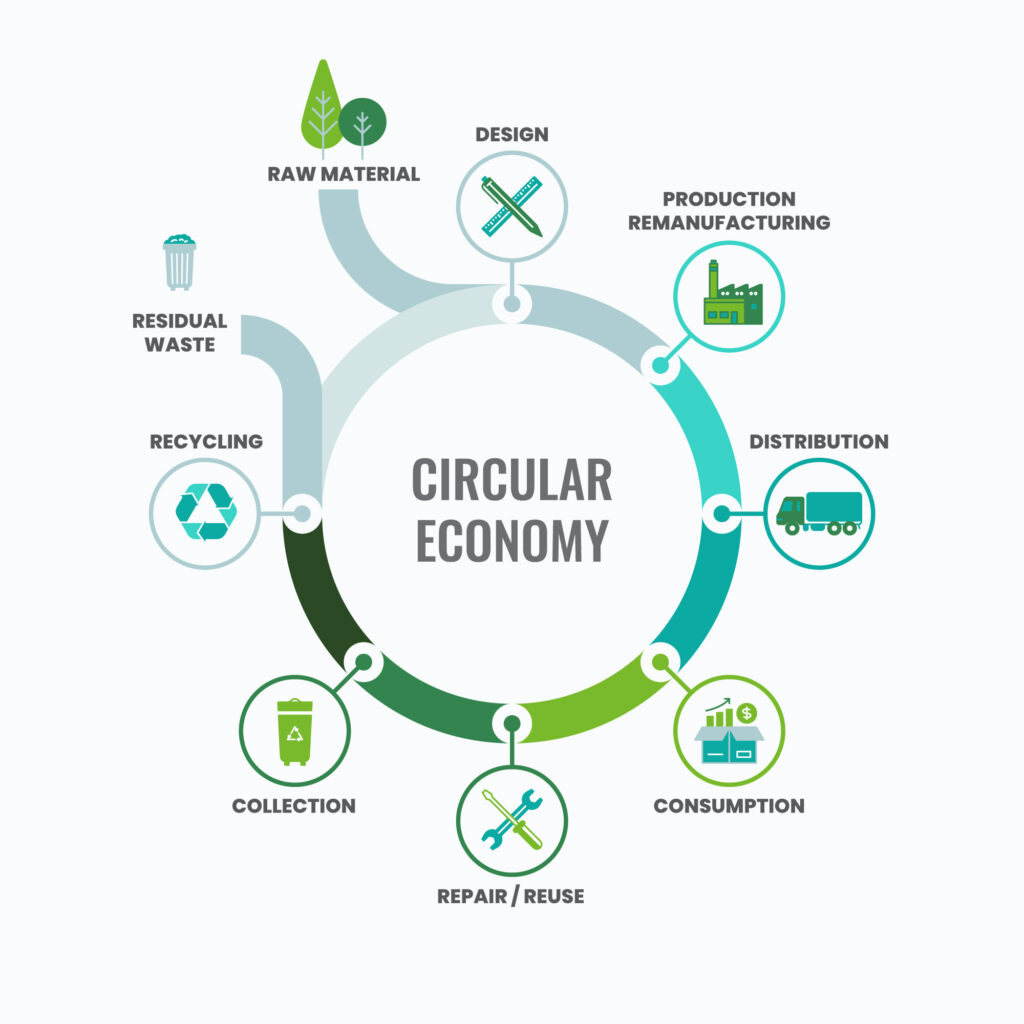Solar panels, with their ability to harness the sun’s abundant energy, have become equivalent with renewable energy solutions. However, as the demand for solar power continues to rise, so does the need for responsible disposal and recycling of solar panels. This brings us to the concept of the circular economy—a system designed to minimize waste and maximize resource efficiency.
Let’s delve into the circular economy of solar panels, exploring recycling initiatives and sustainability practices that pave the way for a brighter future.
Understanding the Circular Economy
The circular economy is a comprehensive approach to resource management that aims to keep materials and products in use for as long as possible, through reuse, recycling, and regeneration. Unlike the traditional linear economy, which follows a ‘take-make-dispose’ model, the circular economy focuses on closing the loop, thereby reducing waste and environmental impact.
Circular Economy : A solution for sustainable future
Link : https://solarimpulse.com/circular-economy-solutions
Challenges in Solar Panel Recycling
While solar panels offer various environmental benefits during their operational lifespan, they pose challenges at the end of their life cycle. Solar panels typically have a lifespan of 25 to 30 years, after which they need to be replaced or decommissioned. Improper disposal can lead to environmental hazards, as solar panels contain hazardous materials such as lead, cadmium, and silicon. Moreover, the sheer volume of solar panels reaching the end of their life cycle presents a pressing need for effective recycling solutions. Additionally, inefficient disposal practices contribute to resource depletion and pollution.
Components of Solar PV Panels
Link : https://vsses.com/solar-photovoltaic-pv-panels-rooftop-recycle-repeat/
Recycling Initiatives and Sustainable Practices
Fortunately, progress has been made in solar panel recycling, driven by industry initiatives and technological advancements. Recycling facilities have emerged to handle solar panels completing their life span, recovering valuable materials like glass, aluminum, and silicon for reuse in new products. Innovative processes, such as thermal or chemical treatments, are employed to separate and purify these materials, minimizing waste and maximizing resource efficiency.
Moreover, manufacturers are increasingly adopting sustainable practices in panel design and production. This includes using eco-friendly materials, reducing energy consumption during manufacturing, and implementing product management programs to take responsibility for the entire life cycle of solar panels. By prioritizing sustainability at every stage, from manufacturing to disposal, the solar industry is moving towards a more circular and constructive approach.
Recycling Process of Solar PV Panel
Link : https://vsses.com/solar-photovoltaic-pv-panels-rooftop-recycle-repeat/
Benefits of a Circular Economy for Solar Panels
Adopting the circular economy brings benefits for the solar industry and the environment. By recycling solar panels, valuable resources are recovered, reducing the need for natural materials and mitigating the environmental impact of raw material extraction. Furthermore, recycling creates opportunities for job creation and economic growth in the green technology sector, promoting a more sustainable and strong economy.
Additionally, a circular economy approach enhances the reputation and reliability of solar energy as a truly sustainable solution. Consumers and businesses alike are increasingly prioritizing eco-friendly products and practices, driving demand for renewable energy solutions with powerful recycling and sustainability capability.
Conclusion
As we transition towards a green future, the circular economy of solar panels plays a pivotal role in achieving sustainability goals. Through collaborative efforts across the solar industry, policymakers, and stakeholders, we can harness the power of solar energy while preserving the planet for future generations.
Join our SafEarth marketplace to explore your options and buy your solar system from qualified installers in your area to make the switch easy.

